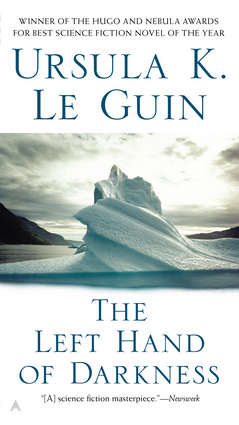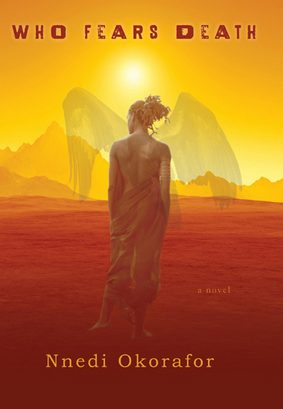Full list of books I read at the bottom of this post!
I just reached my 2014 reading challenge target of 50 books this year, all by women! I’m so glad I did it, for a number of reasons. I wrote about some of these when I was halfway through the ReadWomen2014 challenge. As well as reading more this year than I’ve done in a really long time, this year has also been the first year that I’ve written so regularly, and I can’t help but connect the two; maybe putting so many new ideas and perspectives in my head had to result in a bigger “output”, too.
Looking back on the list of books I read revealed a few surprises to me, such as that the majority of authors I read are from the US. I had an inkling that this was happening about halfway through the year, so I tried to avoid books from North American authors in an effort to widen my perspective - but it proved more difficult than I had thought! I found that lots of writers were African-American, living in the US, when I had thought that they wouldn’t be related to the US in any way from a quick scan over their initial biography and writing topic.
My favourite genre this year was, by far, science fiction. Before you skim over this paragraph if you’re not into science fiction - wait! I was totally sceptical of science fiction too, and really didn’t see the draw of it. But, try thinking of it as a series of thought experiments, to challenge your way of thinking. That’s it; just a challenge to your imagination, a different way of understanding structures and things you take for granted.

If I can recommend just one book that you test the waters of science fiction with - try Ursula K. Le Guin’s book, The Left Hand of Darkness. For more proof of just how much I liked her books - it turns out I read 7 books by her this year (and probably would’ve enjoyed many more, but I wanted to diversify a little!). One of them, Lavinia, leans more towards historical fiction rather than science fiction, but was just as mesmerising a read as the others.
Another wonderful science fiction book that I read this year and can only recommend, is The Gate to Women’s Country by Sheri Tepper. I couldn’t (can’t?) stop thinking about it. It is set in a dystopian future where roles in society are more strongly set out by gender than ever before. Read it, read it, read it!
The majority of fiction books I read this year were, it turns out, feminist science fiction. All of them were pretty wonderful, and challenged lots of my understandings of social structures - writers like Octavia Butler, Lauren Beukes, Connie Willis, Margaret Atwood, and Ann Leckie, whose debut novel Ancillary Justice was truly fantastic. I would also especially recommend, from that list of authors, Octavia Butler’s time-travelling wonderful book Kindred. A new genre for me was ‘Afrofuturism’- a mix between African traditions and science fiction, which I find fascinating! If you like the sound of that, I’d recommend Nnedi Okafor’s book Who Fears Death.

Another particularly good fiction book that I enjoyed this year was The Summer We Got Free by Mia McKenzie - it was beautifully written, and fairly dissimilar to the other books I read this year. It’s the winner of a Lambda Literary Award - which is the way I came across it - and is a really haunting story, that I couldn’t put down.
Similarly, “The Book of Unknown Americans” by Cristina Henriquez was really great. It tells some interweaving stories of Latin American families who have arrived in the US, and the journey and lives they lead.
Ghana Must Go was another favourite, from Taiye Selasi. It tells the tale of a family whose members move across continents and countries, and the struggles of identity and family ties they experience as immigrants in various contexts. On a slightly similar theme, and an equally (if not more) engrossing book - Imagine This by Sade Adeniran. It’s written as a fictional diary of a girl who moves from London to Nigeria, and all about the culture clashes that she experiences.
In terms of non-fiction, one of my favourites was Emily Parker’s book Now I Know Who My Comrades Are, which I wrote about in more detail here. In short, I appreciated it greatly for the author’s in-depth knowledge of the countries she was writing about (China, Cuba and Russia) and her understanding of how offline culture affects the way that people interact online. It was a fascinating read about internet activism in different cultures.
Another top read was Gabriella Coleman’s book Hacker, Hoaxer, Whistleblower, Spy, which I’ve been meaning to write more about. We discussed it in Tech Book Club, and we weren’t short of things to discuss; it is the story of Anonymous, but touches upon many other fascinating topics - activism, online harassment, people’s behaviour online vs offline, anonymity, hacker culture, organising online and offline… it’s reasonably long, but it’s an engaging read, and much less academic than her previous book, Coding Freedom. I also really enjoyed Coding Freedom, and have recommended it a lot to people who want to understand more about the world of hackers!
In the genre of feminist non-fiction, Laurie Penny’s book “Unspeakable Things: Sex, Lies and Revolution” by Laurie Penny was really good. It’s largely focused on British society, and is a good analysis of gender and power, with a healthy dose of personal anecdotes spread throughout the book.
bell hooks’ The Will to Change: Men, Masculinity and Love was really, really incredible. I don’t know what to say about it other than that. It’s not a long read, and totally worth it.
I was lucky to read overwhelmingly good books this year, largely through recommendations or mentions of the books online or on Twitter, and I would love to write more about them here. Unfortunately, writing about all of my favourites would make this post just too long, so I’ve listed below the full list of books I read. Those that I would recommend strongly have two stars by them, and those which I would still recommend, but perhaps less strongly, just one.
And to end my year of reading lots, a quote from Ursula K. Le Guin:
"We read books to find out who we are... For the story - from Rumpelstiltskin to War and Peace - is one of the basic tools invented by the mind of man, for the purpose of gaining understanding. There have been great societies that did not use the wheel, but there have been no societies that did not tell stories."
-
from “Prophets and Mirros: Science Fiction as a Way of Seeing,” The Living Light 7:3, by Ursula K. Le Guin.
- White Teeth by Zadie Smith *
- The God of Small Things by Arundhati Roy *
- The Left Hand of Darkness (Hainish Cycle, #4) by Ursula K. Le Guin **
- A Tale for the Time Being by Ruth Ozeki *
- The Dispossessed (Hainish Cycle, #5) by Ursula K. Le Guin **
- The Will to Change: Men, Masculinity, and Love by Bell Hooks **
- The Color Purple by Alice Walker **
- The Word for World Is Forest by Ursula K. Le Guin **
- Now I Know Who My Comrades Are: An On-the-Ground Look at the Lives of Internet Activists in China, Cuba, and Russia by Emily Parker **
- Lavinia by Ursula K. Le Guin **
- The Telling (Hainish Cycle #8) by Ursula K. Le Guin
- Ghana Must Go by Taiye Selasi **
- Kindred by Octavia E. Butler **
- Four Ways to Forgiveness (Hainish Cycle #7) by Ursula K. Le Guin **
- Oryx and Crake (MaddAddam Trilogy, #1) by Margaret Atwood **
- Soundings: The Story of the Remarkable Woman Who Mapped the Ocean Floor by Hali Felt * (non-fiction, biography)
- Tell a Thousand Lies by Rasana Atreya
- The Memory of Love by Aminatta Forna *
- The Summer We Got Free by Mia McKenzie **
- The Spider King’s Daughter byChibundu Onuzo
- My Brilliant Friend by Elena Ferrante
- Coding Freedom: The Ethics and Aesthetics of Hacking by Gabriella Coleman **
- Who Fears Death by Nnedi Okorafor ** (though it deals with certain topics in a very raw and graphic way - trigger warning)
- Losing Touch by Sandra Hunter
- I Know Why the Caged Bird Sings by Maya Angelou **
- A Different Sky by Meira Chand *
- Zoo City by Lauren Beukes *
- Afrofuturism: The World of Black Sci-Fi and Fantasy Culture by Ytasha L. Womack
- Ancillary Justice (Imperial Radch, #1) by Ann Leckie ** (and the second one in this series is out now, too!)
- Unspeakable Things: Sex, Lies and Revolution by Laurie Penny **
- All the Birds, Singing by Evie Wyld (again, with a trigger warning - contains graphic portrayals of sexual abuse)
- The Folded Earth by Anuradha Roy *
- Karachi, You’re Killing Me! by Saba Imtiaz (I wouldn’t recommend this so much, but mainly because it was written much more in a ‘chick lit’ style than I was expecting)
- The Book of Unknown Americans by Cristina Henriquez
- Indonesia, Etc.: Exploring the Improbable Nation by Elizabeth Pisani ** (especially if you’re travelling to Indonesia - this is the perfect companion)
- Voices (Annals of the Western Shore, #2) by Ursula K. Le Guin **
- Maya’s Notebook by Isabel Allende **
- Dawn (Xenogenesis, #1) by Octavia E. Butler **
- Imagine This Sade Adeniran ** (really great book!)
- Adulthood Rites (Xenogenesis, #2) Octavia E. Butler **
- Imago (Xenogenesis, #3) by Octavia E. Butler **
- Short Stories by Latin American Women: The Magic and the Real by Celia Correas Zapata **
- The Secret Lives of Baba Segi’s Wives by Lola Shoneyin *
- To Say Nothing of the Dog (Oxford Time Travel, #2) by Connie Willis *
- On Black Sisters Street: A Novel by Chika Unigwe **
- The Gate to Women’s Country by Sheri S. Tepper **
- Hacker, Hoaxer, Whistleblower, Spy: The Many Faces of Anonymous by Gabriella Coleman **
- Before We Were Free by Julia Alvarez **
- A Bit of Difference by Sefi Atta **
- Sex and the Citadel: Intimate Life in a Changing Arab World by Shereen El Feki *
- The Woman Warrior by Maxine Hong Kingston **